You Cannot Have Peace in Palestine While Ignoring Palestinians
The international community needs to show Palestinians that they are not seen and heard only when they engage in acts of violence that claim the lives of Israelis.
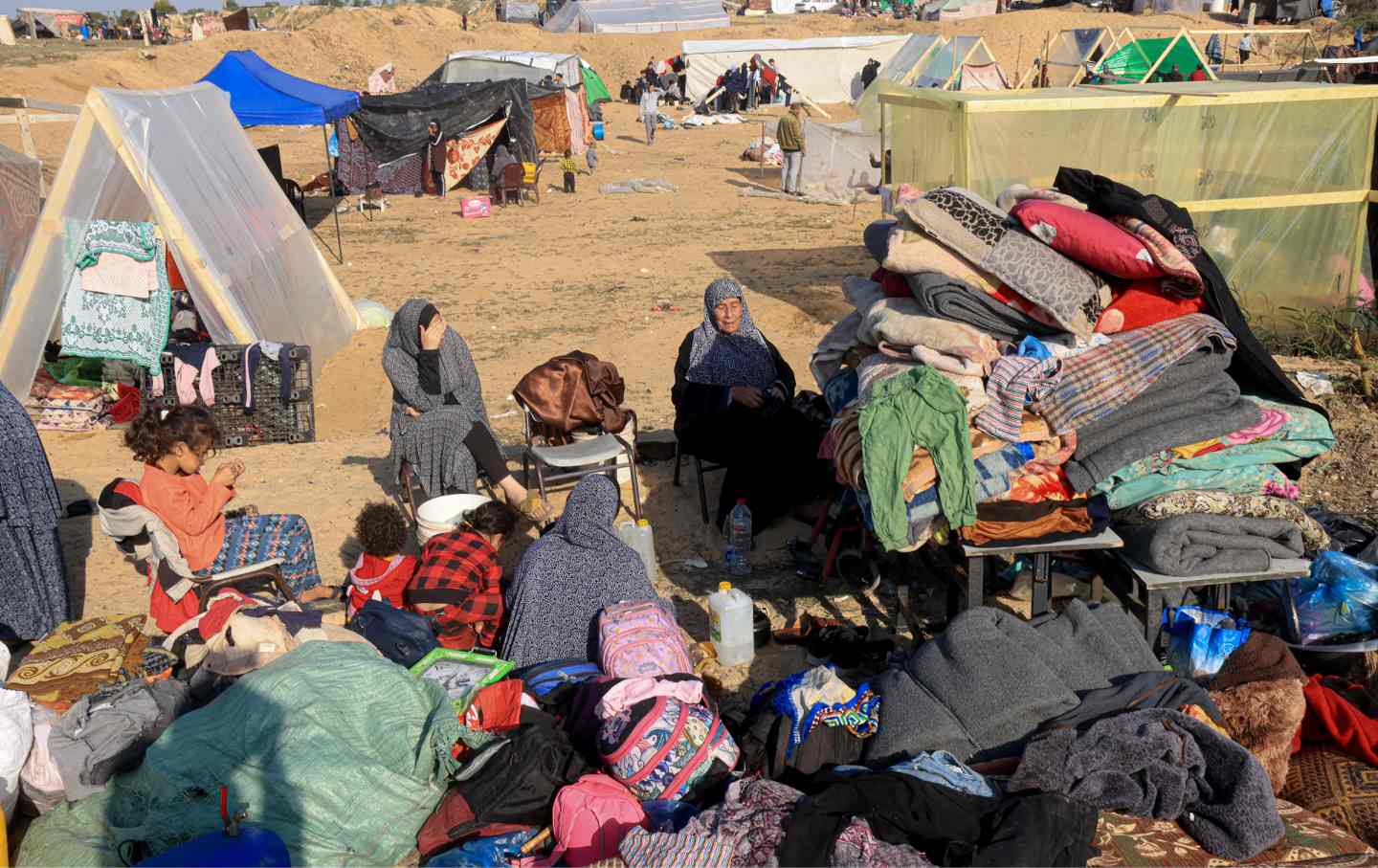
“They only see us when we fight back,” Hamza told me during a brief window of Internet connection before the line was cut. “When we don’t fight back, we are dead to the world.”
Hamza is a photojournalist in Gaza. He asked us not to use his real name because of Israel’s history of targeting Palestinian journalists and their families. (Israeli forces have already killed at least 60 journalists over the last month.) My sporadic conversations with Hamza have become one of my few remaining windows into Gaza, where dozens of members of my extended family have been killed.
After more than 1,200 Israelis were killed in Hamas’s October 7 attack, President Joe Biden wasted no time in rushing to Israel’s defense. He announced over $14 billion in additional financial and military funding to Israel, replenished Israeli weapons stocks, and provided diplomatic cover for the unprecedented Israeli assault on Gaza that has killed nearly 16,000 Palestinians as of this writing.
But on October 29, in the face of the rising death toll and looming threat of a regional war, President Biden qualified his otherwise unconditional support of Israel’s incursion into Gaza by stating that “there is no going back to the status quo” that existed before October 7. “In our view, it has to be a two-state solution,” President Biden said.
While consecutive administrations had once prioritized the Israel-Palestine conflict, Biden has offered at best vague assurances about someday working towards a Palestinian state—or something close enough. Not once has he taken any concrete steps to pressure Israel to end the occupation or hold Israel accountable for creating the conditions that now render a two-state solution impossible. Not once has he broken with Washington’s long-standing policy of abetting Israel in its systematic destruction of every possible peaceful avenue to Palestinian liberation.
Should President Biden’s newfound urgency and commitment to prioritizing a two-state solution prove sincere, it will serve to affirm what many Palestinians have spent years internalizing: that they are only seen and heard when they engage in acts of violence that claim the lives of Israelis. These are hard truths to discuss. But they are truths nonetheless; ignoring them will not make them disappear, and it will not absolve us of our collective role in creating this reality.
There is a way for this reality to change. In the short term, Israel’s assault on Gaza—which resumed on Friday morning after the tenuous weeklong cease-fire between Israel and Hamas fell apart—must end, permanently. Then, the United States and the rest of the world must take Palestinian demands for liberation and self-determination seriously, not only because Israeli blood has been shed but because the people of Palestine equally deserve life. This must be the last time the international community ignores Palestinians until the moment they lash out.
Up until October 7, the Biden administration paid little attention to the plight of Palestinians. Instead, it was driven by the goal of establishing a new US-dominated regional security paradigm built on the expansion of the Trump administration–brokered Abraham Accords. For President Biden, presiding over an official Saudi-Israel normalization agreement could pay dividends for his 2024 reelection campaign.
Meanwhile, the roots of violence in Israel-Palestine—more than 75 years of military occupation, a tightening Israeli blockade of Gaza, skyrocketing attacks by extremist Israeli settlers across the West Bank, and a genocidal far-right Israeli government—were swept under the rug. The message to Palestinians was clear. Arab, Western, and Israeli leaders alike expected them to roll over and quietly accept their fate under perpetual Israeli occupation and apartheid.
In the face of the one-state reality Israel has cemented across colonized Palestine and the collapse of the so-called “peace process,” Palestinians have lost faith in leaders they see as nothing but corrupt subcontractors for Israel. A recent poll found that nearly 80 percent of Palestinians want President Mahmoud Abbas to resign and only one in six Palestinians between the ages of 15 and 25 said they have faith in a two-state solution.
And by spending decades delegitimizing or crushing all nonviolent forms of protest, Israel has made it clear that there is no appropriate way for Palestinians to resist their oppression. When Palestinians engage in boycott, divestment, and sanctions campaigns aimed at rendering Israeli occupation economically unsustainable, they are smeared as antisemites, and silenced by lawfare. In 2018, Gazans organized the unarmed Great March of Return to demand the right of return and an end to the blockade of Gaza, only to be met with Israeli sniper fire. Over 200 Palestinians, mostly teenagers, were killed and an entire generation maimed. Even diplomatic efforts to bring Israel to the International Criminal Court are met with accusations of “diplomatic terrorism.”
It should come as no surprise, then, that in a climate in which Palestinians find themselves more hopeless than ever before, support for armed resistance has increased. Over 71 percent of Palestinians support groups such as the Nablus-based Lions’ Den and the Jenin Brigade who took up arms to defend their towns and cities from repeated attacks and incursions by Israeli soldiers and settlers.
Now, in the face of Israel’s devastating assault on Gaza and the ethnic cleansing of Palestinians in the West Bank, coupled with the absence of international intervention, is it any wonder that so many Palestinians consider groups engaged in armed resistance to be the only ones standing between them and complete erasure?
Popular
“swipe left below to view more authors”Swipe →When I spoke to Hamza on the phone before we lost connection, he painted a grim picture.
“I do not support Hamas, for religious reasons. I know they are corrupt and we have had many protests against their rule in Gaza,” Hamza told me. “But we all recognize that Israel’s blockade is the biggest source of our problems. Israel is our prison guard.”
Indeed, a recent survey found that 73 percent of Gazans said they had either “no trust at all” or “not a lot of trust” in Hamas. But governance aside, many see groups like Hamas as the only ones left to stand up for Palestinians in their struggle for liberation.
What surveys and polls do not capture is the deep trauma that decades of occupation and blockade have inflicted upon entire generations of Palestinians, especially those in Gaza, where youth account for over half of the population. Hamza, who is 21 years old, has lived through five major Israeli wars on Gaza. He has never been allowed to leave. The vast majority of children in Gaza suffer from debilitating conflict-related trauma after seeing their homes destroyed and their loved ones massacred by Israeli weapons.
Israeli leaders and their Western benefactors remain singularly obsessed with destroying Hamas, but what they continue to overlook are the conditions that fueled the group’s rise in the first place. By insisting on obliterating all avenues for a peaceful revolution, they are the ones ensuring that the path to liberation is violent. Now, Israel’s refusal to agree to a long-term cease-fire, and its insistence on pursuing a military solution that does not exist, risks leaving yet another generation of Palestinians feeling that they have no choice but to resist by whatever means necessary.
The truth is, millions of young Palestinians have known nothing but the brutality of Israeli occupation and blockade. For those who have lost absolutely everything, to fight back is to experience liberation from the overwhelming hopelessness they have grown up with, even if only for a fleeting moment. As Hamza told me, “When they broke through the border on October 7, it was like an escape from prison. Before all the killing, this gave us hope that maybe one day we can be free. And if Israel kills us here, we will die on our feet, not on our knees.”
This is not an argument for or against armed resistance. Neither is it a justification for the targeting of civilians by Hamas. That is not the point of Hamza’s story. Rather, it is an explanation of the conditions that have led us to this grim place and continue to doom the foreseeable future. As Israel resumes its genocidal campaign in Gaza, it is once again sending the message to many Palestinians that fighting to the last breath will be the only way to survive.
More from The Nation
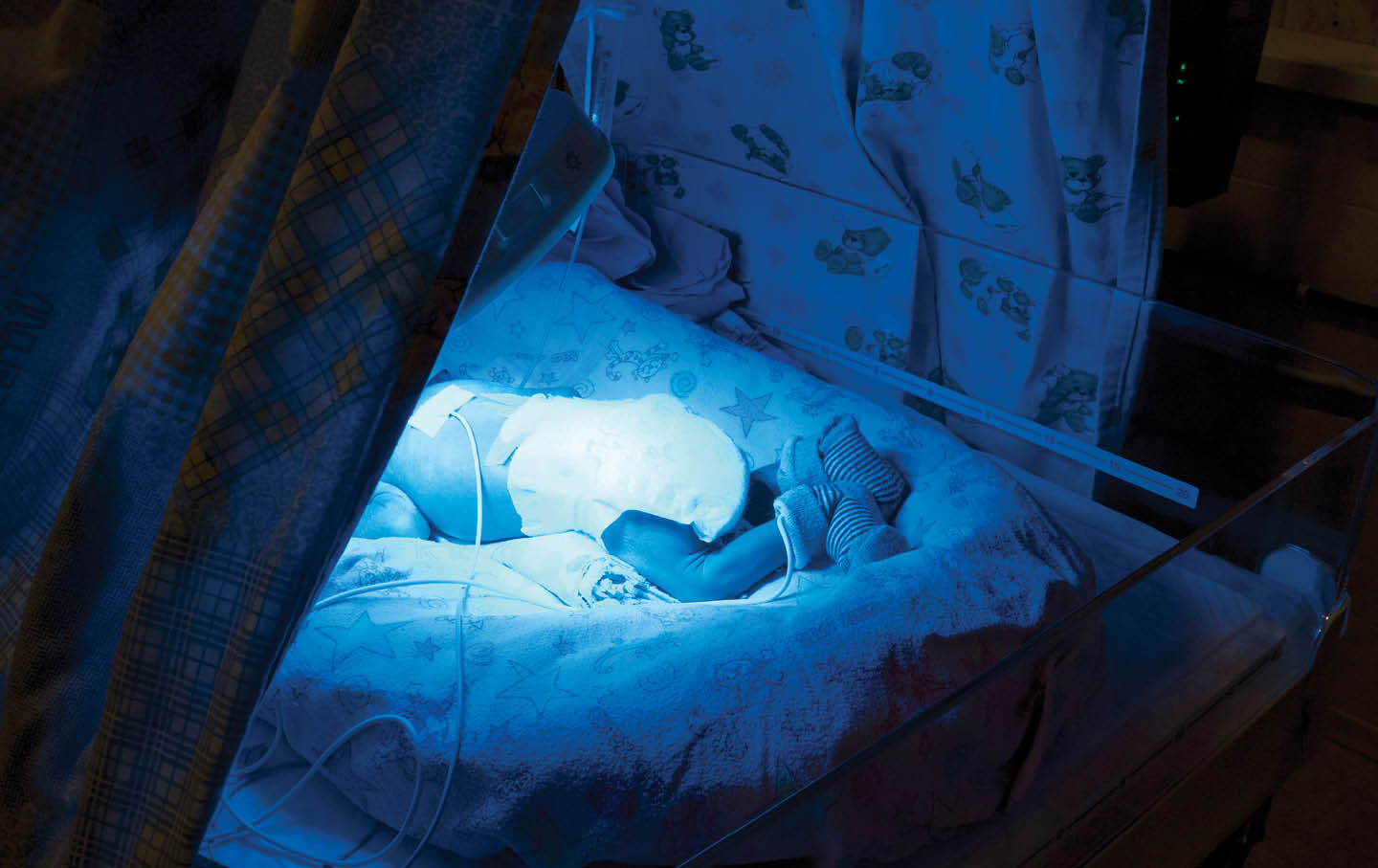
Inside Ukraine’s Underground Maternity Wards Inside Ukraine’s Underground Maternity Wards
Four years after Russia launched its full-scale invasion, Ukrainian health workers are shoring up maternity care to protect the most vulnerable—and preserve Ukrainian id...
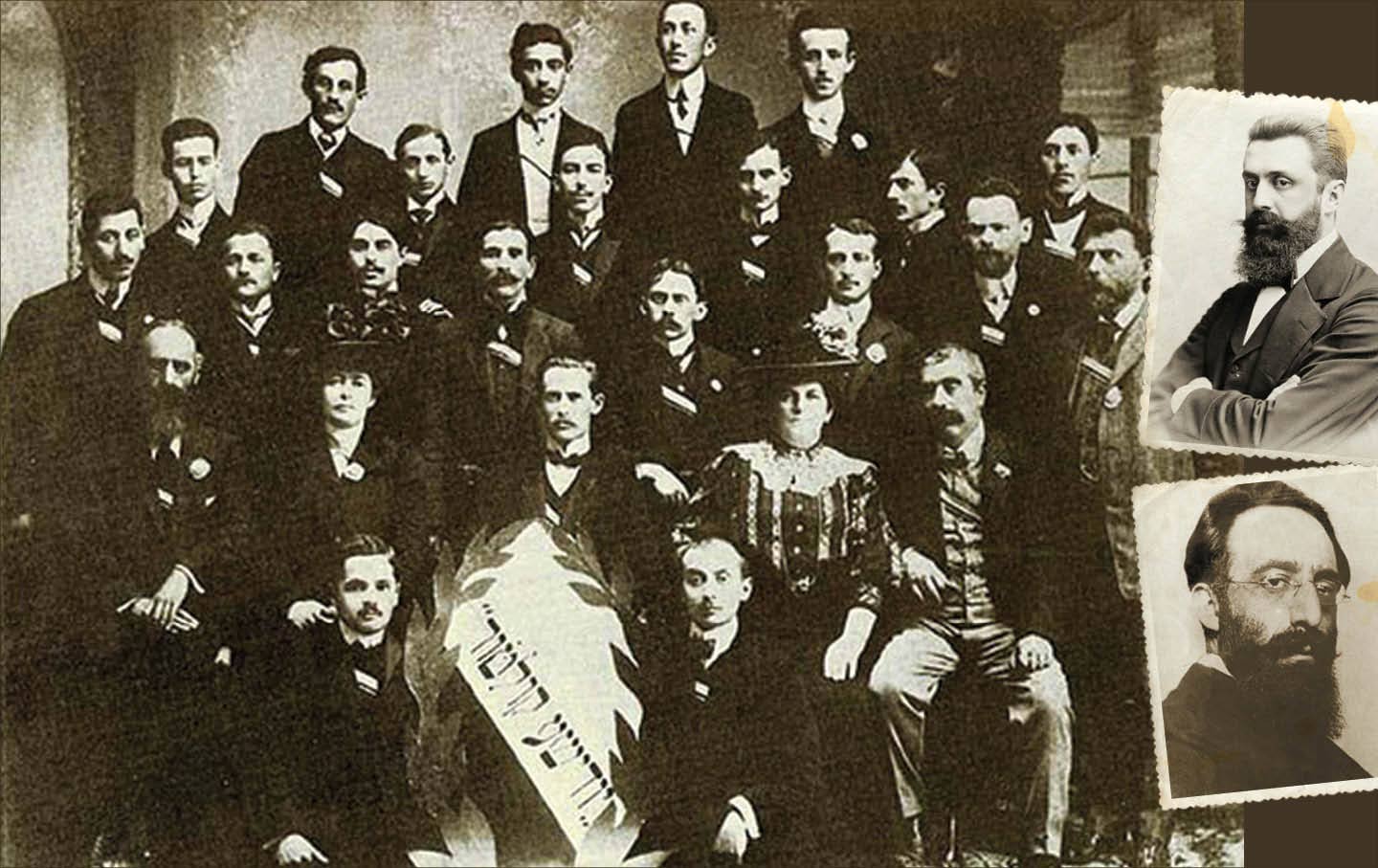
The Long Shadow of the “Jewish Question” The Long Shadow of the “Jewish Question”
After the Holocaust, Israel was hailed as the solution to an essentially antisemitic debate. Now, as another genocide unfolds—in Gaza—Jews are once again questioning the question....

How Heidi Reichinnek Saved Germany’s Left How Heidi Reichinnek Saved Germany’s Left
The co-leader of Die Linke helped rescue the party and make it into a political force. But can she beat back Germany’s ascendant far right?
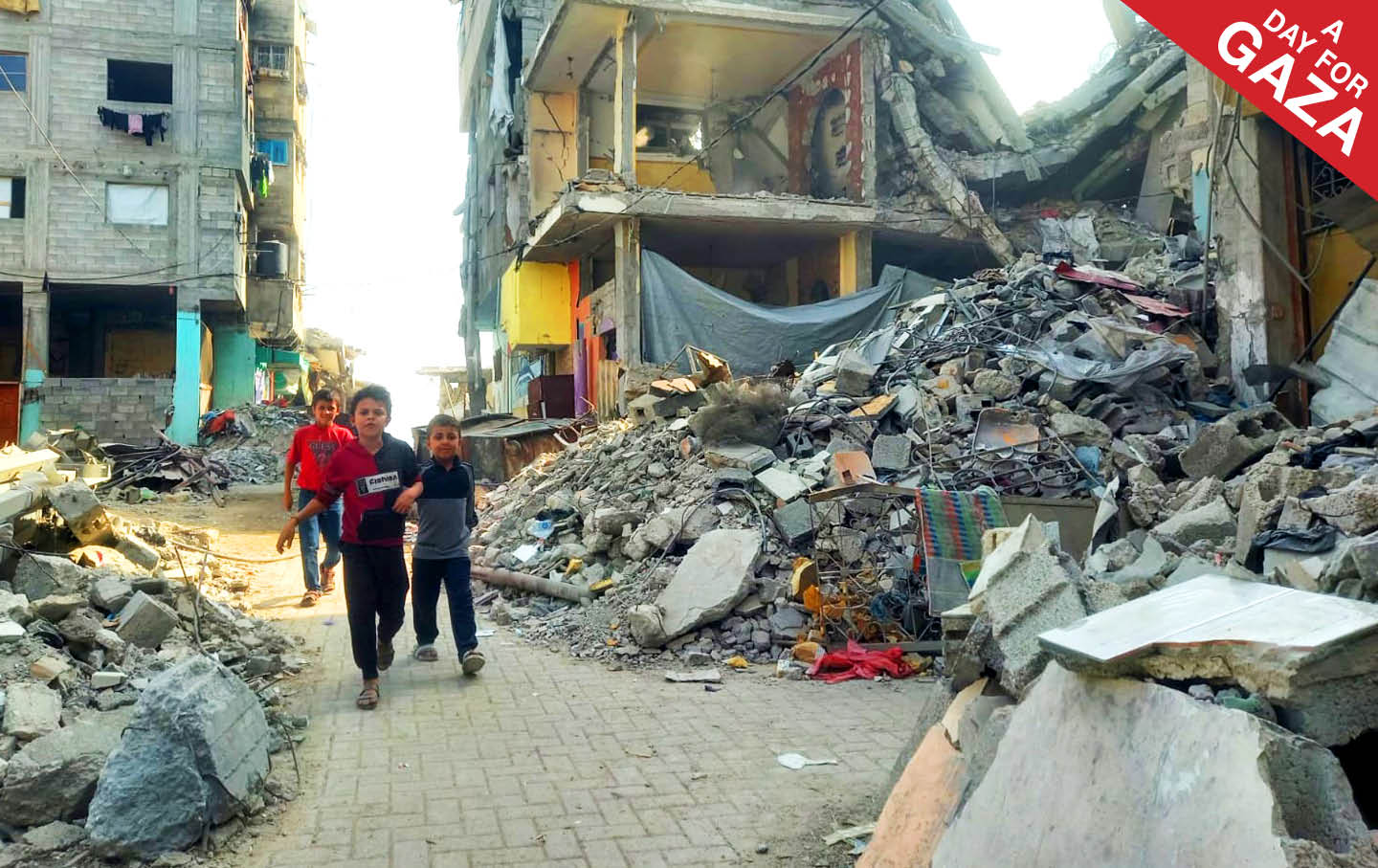
Gaza Is Still Here Gaza Is Still Here
Despite a “ceasefire,” Israel’s killing has not ended. Neither has the determination of the Palestinian people to survive.

The Ghosts of Colonialism Haunt Our Batteries The Ghosts of Colonialism Haunt Our Batteries
With its cobalt and lithium mines, Congo is powering a new energy revolution. It contains both the worst horrors of modern metal extraction—and the seeds of a more moral economics...
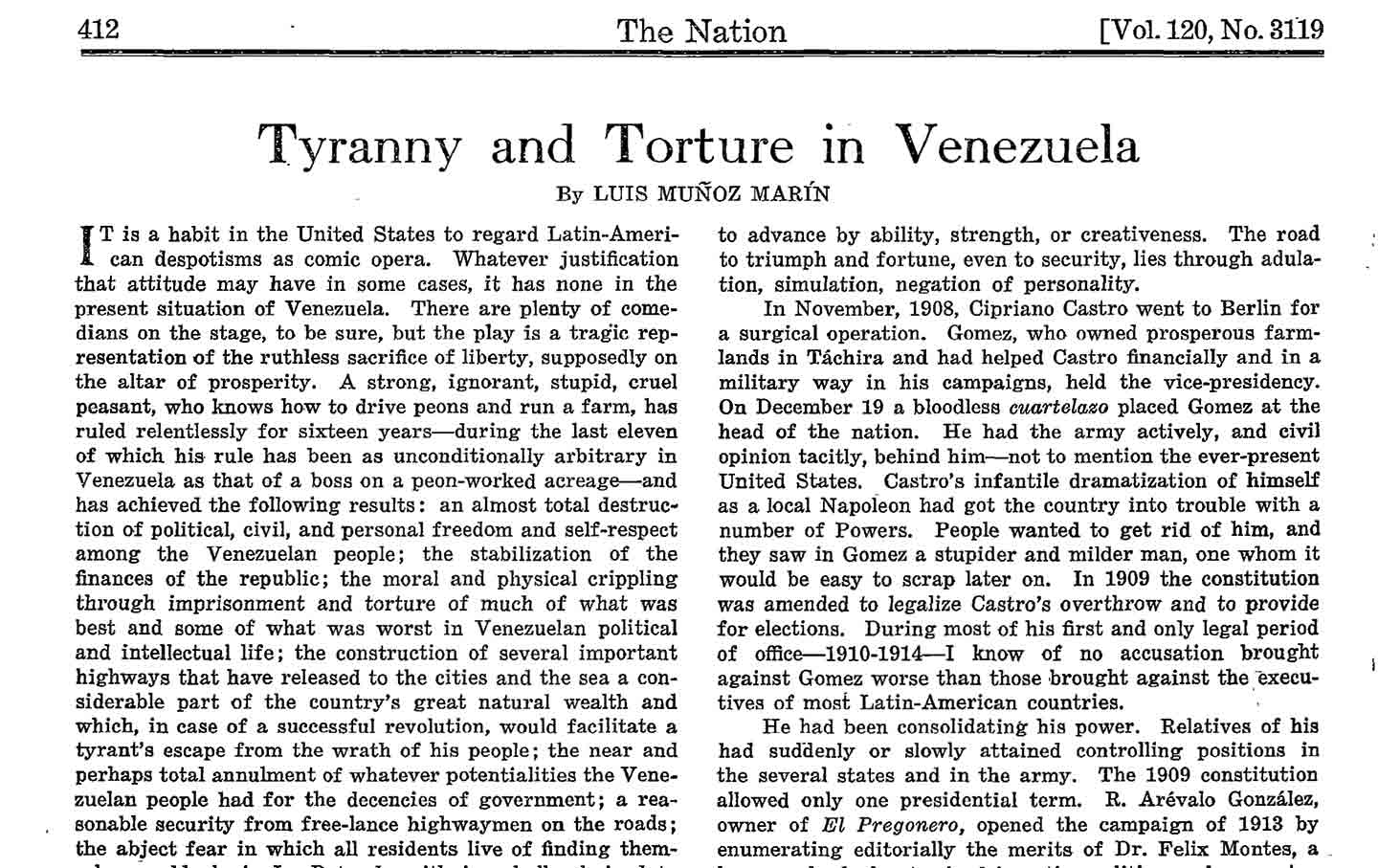
The Repeating History of US Intervention in Venezuela The Repeating History of US Intervention in Venezuela
A look back at The Nation’s 130 years of articles about Venezuela reveals that the more things change, the more they stay the same.


